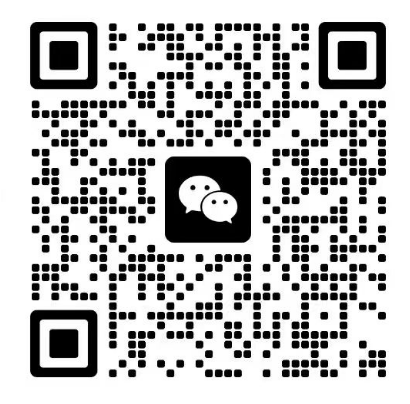天津自考2022年10月英语一模拟试题七
《自考视频课程》名师讲解,轻松易懂,助您轻松上岸!低至199元/科!
【导读】2022年10月天津自考英语一科目的模拟试题,可以作为考前练习,帮助同学们考前巩固基础。
2022年10月自考00012英语一考前模拟题(七)
Of all the components of a good night’s sleep,dreams seem to be least within our control.In dreams,a window opens into a world where logic is suspended and dead people speak.A century ago,Freud formulated his revolutionary theory that dreams were the disguised shadows of our unconscious desires and fears;by thelate 1970s,neurologists had switched to thinking of them as just "mental noise"-the random byproducts of the neural repair work that goes on during sleep.Now researchers suspect that dreams are part of the mind’s emotional thermostat,regulating moods while the brain is "off line." And one leading authority says that these intensely powerful mental events can be not only harnessed but actually brought under conscious control,to help us sleep and feel better."It’s your dream," says Rosalind Cartwright, chair of psychologyat Chicago’s Medical Center, "if you don’t like it, change it."
He link between dreams and emotions shows up among the patients in Cartwright’s clinic.Most people seem to have more bad dreams early in the night, progressing toward happier ones before awakening, suggesting that they are working through negative feelings generated during the day. Because our conscious mind is occupied with daily life we don’t always think about the emotional significance of the day’s events-until, it appears, we begin to dream.
And this process need not be left to the unconscious.Cartwright believes one can exercise conscious control over recurring bad dreams.As soon as you awaken,identify what is upsetting about the dream. Visualizehow you would like it to end instead;the next time it occurs, try to wake up just enough to control its course.With much practice people can learn to,literally,do it in their sleep.
At the end of the day,there’s probably little reason to pay attention to our dreams at all unless they keep us from sleeping or "we wake up in panic," Cartwright says.Terrorism,economic uncertainties and general feelings of insecurity have increased people’s anxiety.Those suffering from persistent nightmares should seek help from a therapist. For the rest of us,the brain has its ways of working through bad feelings.Sleep-or rather dream-on it and you’ll feel better in the morning.
Choose correct answers to the question:
1.By saying that “dreams are part of the mind’s emotional thermostat," (Lines 4-5, Para. 1) the researchers mean that _______.
A.we can think logically in the dreams too
B.dreams can be brought under conscious control
C.dreams represent our unconscious desires and fears
D.dreams can help us keep our mood comparatively stable
2.What did Cartwright find in her clinic?
A.Most bad dreams were followed by happier ones.
B.Divorced couples usually have more bad dreams.
C.One’s dreaming process is related to his emotion.
D.People having negative feelings dream more often.
3.Cartwright believed with much practice,we can learn to _____.
A.control what dreams to dream
B.sleep well without any dreams
C.wake up in time to stop the bad dreams
D.identify what is upsetting about the dreams
4.The author points out that a person who has constant bad dreams should ______
A.learn to control his dreams
B.consult a doctor
C.sleep and dream on it
D.get rid of anxiety first
5.The author most probably thinks that controlling dreams is ______.
A.a good practice
B.a new discovery
C.helpful for everyone
D.not essential for everyone
参考答案
1.[D] 词义理解题。在第1段第4句中,逗号后面的regulating moods是对emotional thermostat的功能进行解释说明,因此可以推断出选项D正确。
2.[C] 事实细节题。最具干扰的是选项A,因为其陈述与第2段第2句的陈述有点相似,但是,此长句说的是大多数人上半夜做噩梦,之后都会做好梦,而不是像选项A中所说大多数噩梦之后是好梦。而且,根据本段第1 句,很明显,选项C是这一句的近义替换。
3 [C] 推理判断题。本题考査对代词的理解。在第3段的最后一句中,代词it应指上文说到的控制噩梦,及时醒来等做法,因此只有选项C涉及了其中一个做法。选项A太泛了,选项B和D在文中并无提及。
4.[B] 事实细节题。本题考查根据构词法猜测词义的能力。解题关键是推断最后一段第3句中therapist的意义,在考纲词汇表中,therapy是“治疗”的意思,因此,therapist应该是专门负责某种治疗的医生,由此可见,选项B是对原文seek help from a therapist的近义替换。
5.[D] 观点态度题。根据最后一句可以推断作者认为如无必要,梦还是不要控制的好。做梦会让你早上感觉舒服一些,因此本题应选D。
本文标签:天津自考 公共课 天津自考2022年10月英语一模拟试题七
转载请注明:文章转载自(http://www.zikaotj.com)
《天津自考网》免责声明:
1、由于各方面情况的调整与变化,本网提供的考试信息仅供参考,考试信息以省考试院及院校官方发布的信息为准。
2、本网信息来源为其他媒体的稿件转载,免费转载出于非商业性学习目的,版权归原作者所有,如有内容与版权问题等请与本站联系。联系邮箱:812379481@qq.com。











